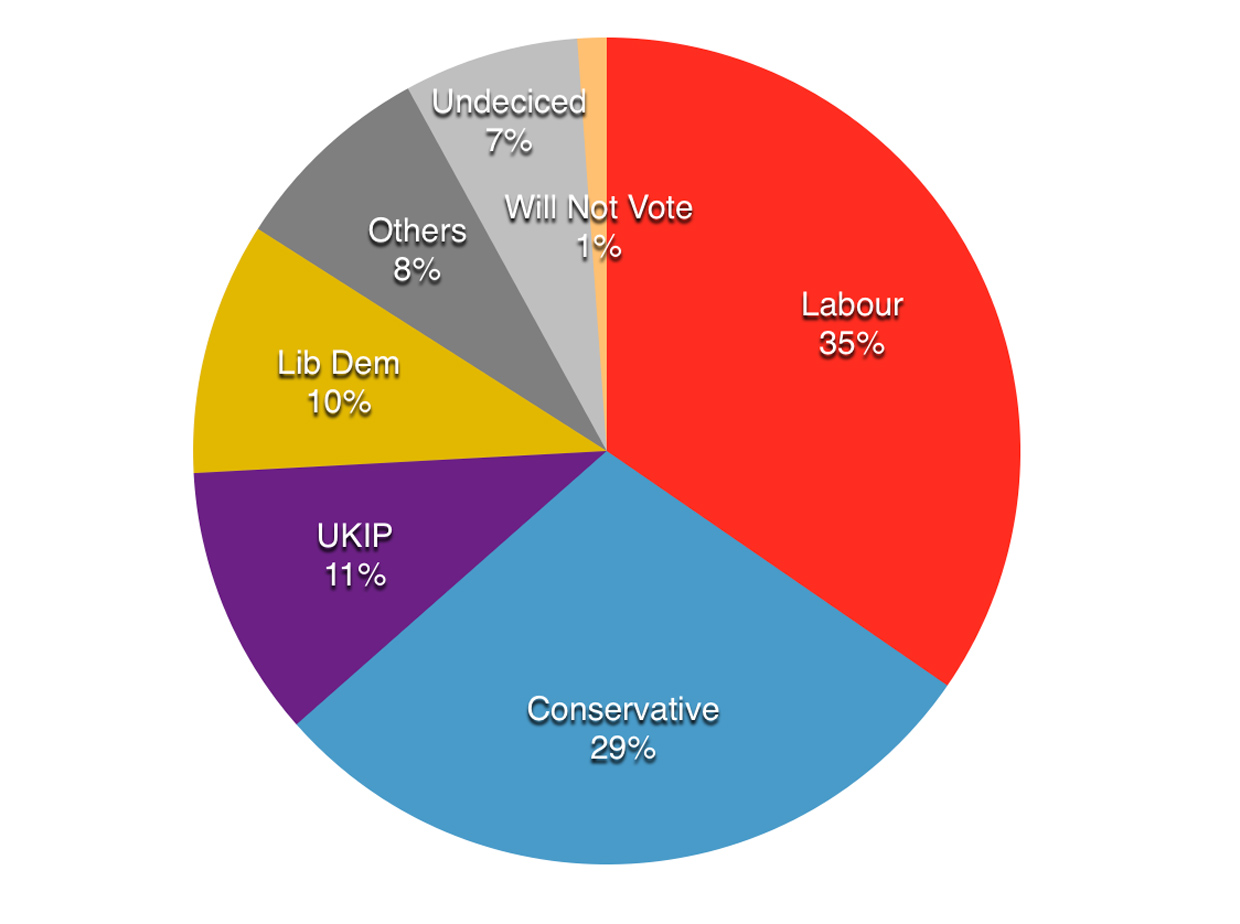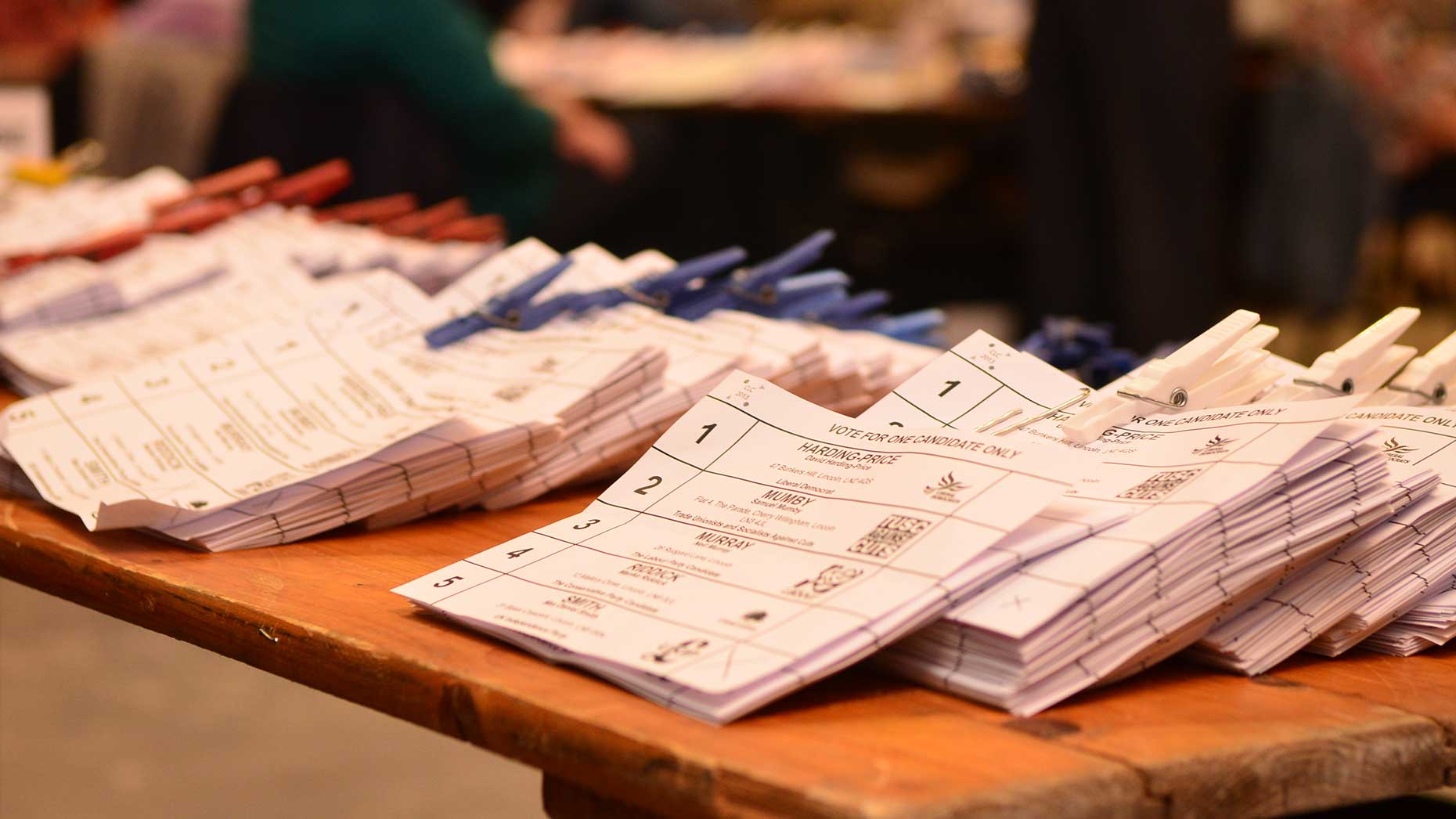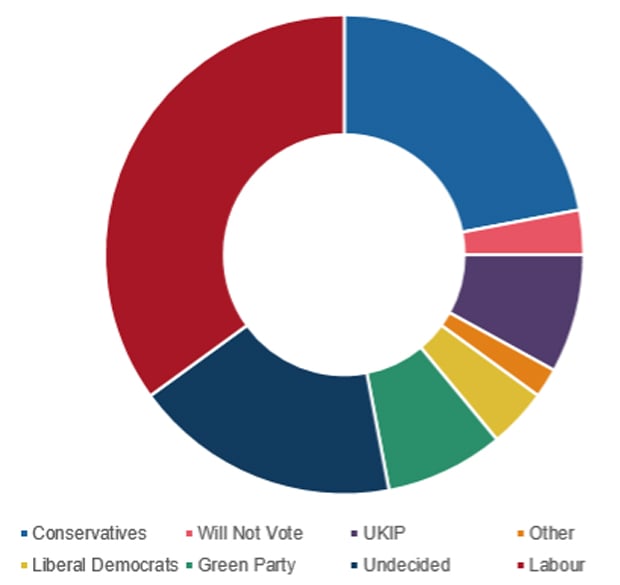The response to last week’s column was great, with another 200 people completing the Big Election Survey.
These responses have broadly supported the results that were reported in the previous post, with Labour commanding over a third of the vote – a share that would see Lucy Rigby named as Lincoln’s next elected representative in Westminster.
In second place is Conservative candidate Karl McCartney, who seems to have lost much of the support that saw him claim victory in the city five years ago.
The next biggest group of voters who are certain of which party they will vote for are those supporting the UK Independence Party (UKIP) – a result that will certainly be encouraging to their candidate, Nick Smith.
You can enter once per week, but please come back each week to update your results. We’ll be contacting winners very soon!
I was pleased to see a number of you discussing the content of the survey on social media. Whilst a number of the points that you raised (such as having no ‘Retired’ option for the employment section, or no option for ‘In a Civil Partnership’ for the relationship section) can’t be addressed now that the link is now open and live, I thought it might be a good idea to let you know why some of the initial questions are being asked.
The idea that Prof. Todd Hogue and I are looking at through this study is called ‘ontological insecurity’. Put simply, this is a feeling of insecurity that people have when their view of the world is challenged by changing social values.
It is also brought about by changes in social structures, economic instability, and perceptions that society is essentially unequal. The causes of such insecurities are many, including mass immigration, growing secularism and the erosion of traditional religious values, and the wider economic downturn (and responses to these issues by the existing political system).
Until our recent work, there was no measurement instrument for ontological insecurity, meaning that claims about its impact on political and social views tended to be grounded in researchers’ opinions, rather than evidence. However, using our new scale – developed through the survey we’re working on with The Lincolnite – we are now able to scientifically examine levels of ontological insecurity in relation to support for different political parties and ideologies.
Our data so far have revealed some interesting trends in relation to levels of ontological insecurity and its link to social and political attitudes, and support for specific political parties.
On the measure of political ideology, which contained questions in relation to attitudes towards crime, welfare, and government involvement in civil life, ontological insecurity was positively associated with right-leaning views. That is, as ontological insecurity grew higher, the political views of those who have responded so far became more conservative.
The question remained, however, about whether ontological insecurity differed according to support for specific political parties. Our analysis was conclusive. There were no differences in levels of ontological insecurity expressed by supporters of any party, with one exception – UKIP. On our newly-developed scale, UKIP supporters were significantly more ontologically insecure than supporters of any political party.
Now, these differences indicate a relationship between UKIP support and increased levels of ontological insecurity. Whilst this relationship appears to be conclusive at face value, further analysis is needed before we can confirm the direction of the relationship.
Two possibilities exist: (1) ontological insecurity causes an individual to be drawn to UKIP, or (2) exposure to UKIP’s messages causes ontological insecurity.
On explanation one, people who are ontologically insecure, through feeling uncomfortable with the pace of social change, and the reduction of security in the workplace see UKIP’s message and think “at last, there’s somebody standing up for us – a party who outwardly advocate “British jobs for British workers”, and a swing back to traditional social and moral values.
The second explanation for UKIP support is slightly different, and argues that UKIP’s message is pulling undecided voters inwards. Here, being exposed to ideas such as Britain losing its national identity, and ‘immigrants coming to steal your jobs’, causes ontological insecurity within both people and communities.
The key difference between these two routes to UKIP support is simple – in the first, people are actively seeking somebody to represent their view at a national level (the traditional ‘political party’ model of support), whereas in the second, people are essentially talked into anxiety through political communication (a model of support more often found in advertising a brand).
Both of these strategies can be found in UKIP’s campaigning, with the party stressing the personal impact of immigration in areas with high migrant numbers, and arguing that Britain is losing its national sovereignty in areas with lower levels of immigration.
The key question still remains – what is driving support to a party like UKIP? According to our data, ontological insecurity appears to be intricately linked to an intention to vote UKIP.
The direction of this link is still something to investigate further, but being insecure within society appears to be a key issue that underpins UKIP support. One thing that we can say with some certainty, though, is that support for UKIP does appear to have some form of psychological underpinning. Therefore, it seems that support for UKIP represents more than just the metaphorical ‘protest vote’.
Craig Harper is a lecturer in human psychology at Nottingham Trent University. His main interests examine how the news media represent a range of social groups, and how these reports impact on social and political discussions. Born and bred in Lincoln, he takes a keen interest in the local area, and is a big supporter of Lincoln City FC.








